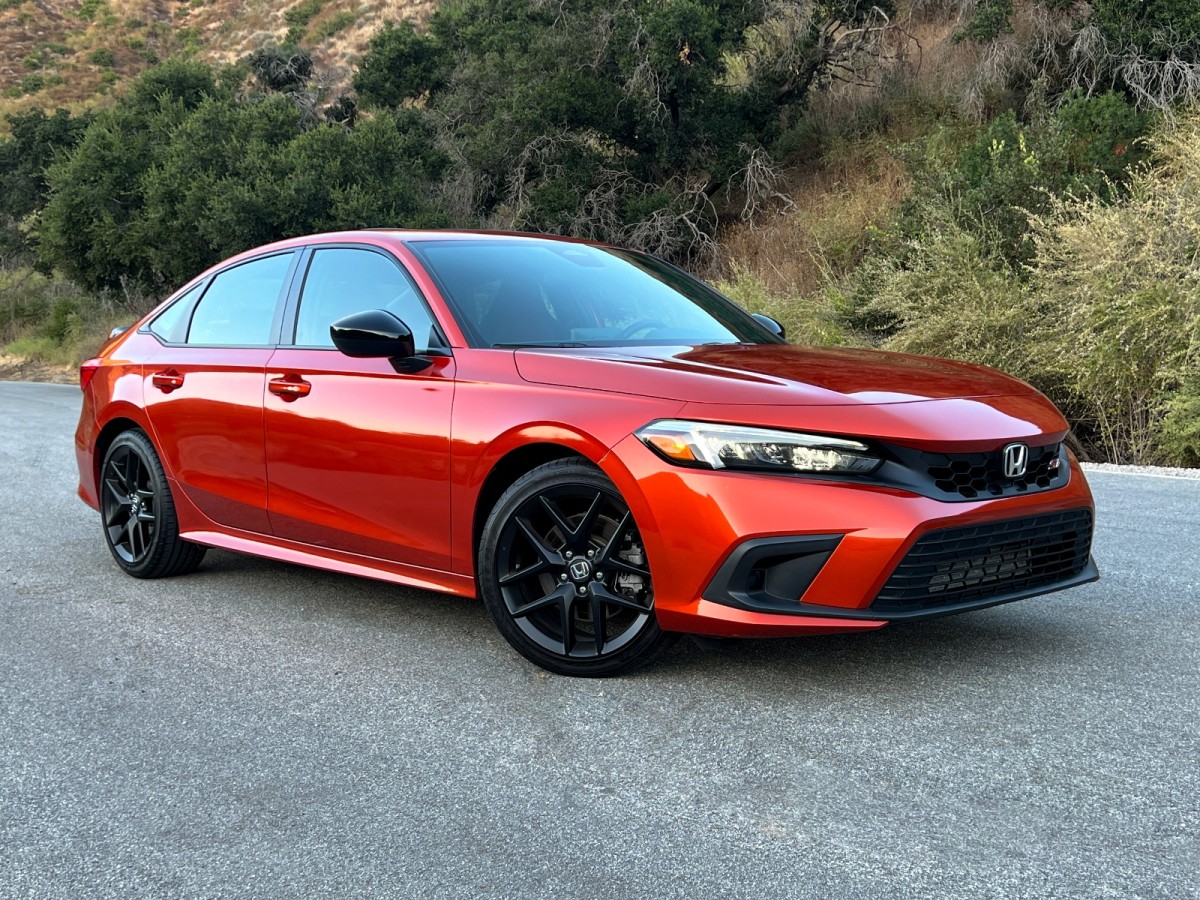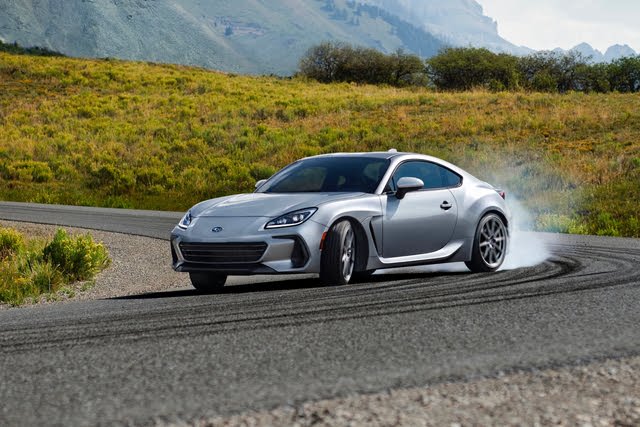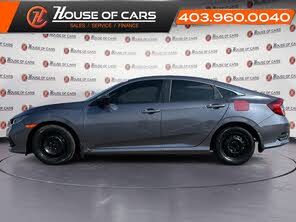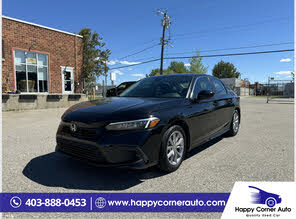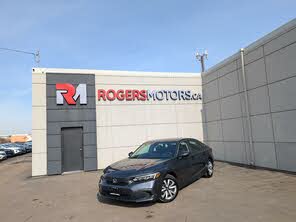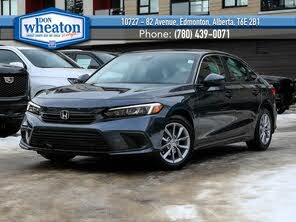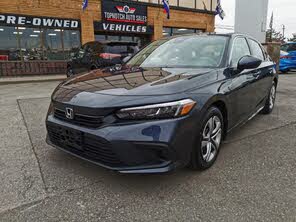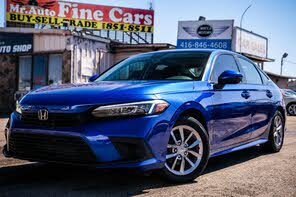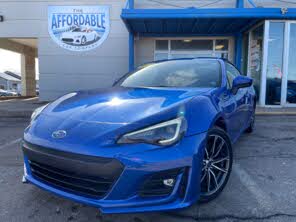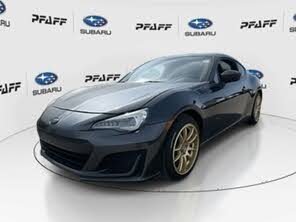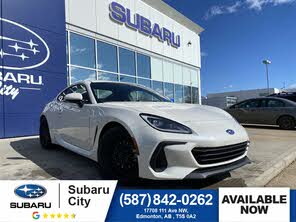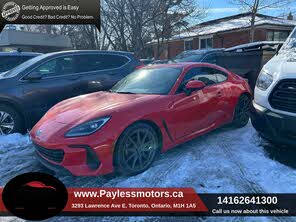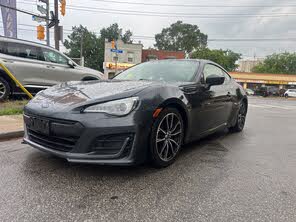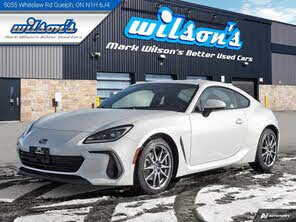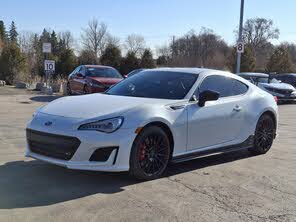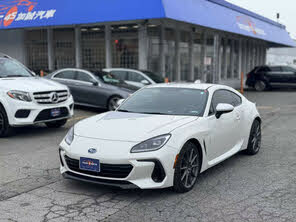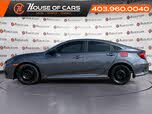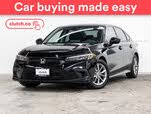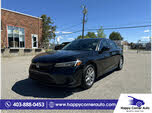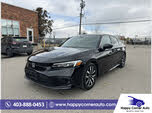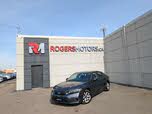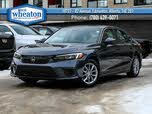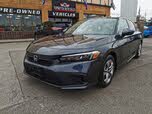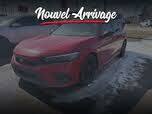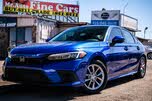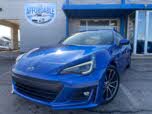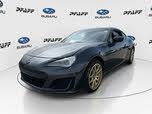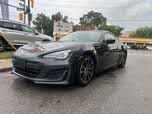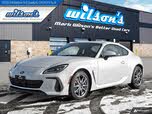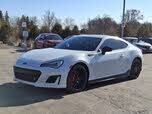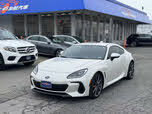Honda Civic vs Subaru BRZ
Overview | |
Years produced1973-Present | Years produced2013-2020 |
MSRP$24,250 | MSRP$27,995 |
Average price$21,653 | Average price$25,573 |
Listings3586 | Listings161 |
Ratings & Reviews | |
User Reviews | User Reviews |
Expert reviews | Expert reviews7.7 out of 10 |
Reviews Summary | |
Reviews SummarySubaru performance has traditionally boiled down to three letters: WRX. But for almost a decade, Subaru fans have gotten familiar with another three-letter code: BRZ. The Subaru BRZ is unlike anything else in the automaker’s lineup. Subaru is known for building practical cars with all-wheel drive (AWD) and turbocharged engines, but the BRZ throws all of that away. It’s a willfully impractical two-door sport coupe with rear-wheel drive (RWD) and a naturally aspirated engine, aimed at providing the most satisfying driving experience. The first-generation BRZ was introduced as a 2013 model, so the sports car was due for a redesign. The 2022 Subaru BRZ gets a restyled exterior and a more powerful engine, as well as more tech features than its predecessor. As before, the new BRZ is twinned with a Toyota product. Its previous counterpart was the Scion FR-S; it's now the Toyota 86, which was renamed GR 86 as part of its redesign (and is covered in a separate review). Subaru keeps the 2022 BRZ lineup simple, with just base and Sport-tech trim levels to choose from. We spent a day with the higher-tier BRZ Sport-tech, driving it on winding roads as well as a race circuit and autocross course. | |
No video found | No video found |
Popular Features & Specs | |
Engine | Engine2.4L 228 hp H4 |
Drive Train | Drive TrainRWD |
Seating Capacity5 | Seating Capacity4 |
Horsepower | Horsepower228 hp @ 7000 rpm |
MPG City | MPG City20 |
MPG Highway | MPG Highway27 |
Engine | |
Engine Name2.0L 150 hp I4 | Engine Name2.4L 228 hp H4 |
Torque133 lb-ft @ 4000 rpm | Torque184 lb-ft @ 3700 rpm |
Horsepower150 hp @ 6400 rpm | Horsepower228 hp @ 7000 rpm |
DrivetrainFWD | DrivetrainRWD |
Fuel Economy | |
MPG City | MPG City20 |
MPG Highway | MPG Highway27 |
Interior | |
Seating Capacity5 | Seating Capacity4 |
Safety | |
Front Crash Overall4 | Front Crash Overall |
Side Crash Overall5 | Side Crash Overall |
Dimensions & Capacity | |
Cargo Space14.8 cu ft | Cargo Space6.3 cu ft |
Curb Weight2877 lbs | Curb Weight2815 lbs |
Height55.7 in | Height51.6 in |
Length184.0 in | Length167.9 in |
Width70.9 in | Width69.9 in |
Wheelbase107.7 in | Wheelbase101.4 in |
Number of doors4 | Number of doors2 |
Overview | ||
Years produced | 1973-Present | 2013-2020 |
MSRP | $24,250 | $27,995 |
Average price | $21,653 | $25,573 |
Listings | ||
Ratings & Reviews | ||
User reviews | ||
Expert reviews | 7.7 out of 10Read full review | |
Pros & cons | ||
Summary | Subaru performance has traditionally boiled down to three letters: WRX. But for almost a decade, Subaru fans have gotten familiar with another three-letter code: BRZ. The Subaru BRZ is unlike anything else in the automaker’s lineup. Subaru is known for building practical cars with all-wheel drive (AWD) and turbocharged engines, but the BRZ throws all of that away. It’s a willfully impractical two-door sport coupe with rear-wheel drive (RWD) and a naturally aspirated engine, aimed at providing the most satisfying driving experience. The first-generation BRZ was introduced as a 2013 model, so the sports car was due for a redesign. The 2022 Subaru BRZ gets a restyled exterior and a more powerful engine, as well as more tech features than its predecessor. As before, the new BRZ is twinned with a Toyota product. Its previous counterpart was the Scion FR-S; it's now the Toyota 86, which was renamed GR 86 as part of its redesign (and is covered in a separate review). Subaru keeps the 2022 BRZ lineup simple, with just base and Sport-tech trim levels to choose from. We spent a day with the higher-tier BRZ Sport-tech, driving it on winding roads as well as a race circuit and autocross course. | |
Video | No video found | No video found |
Popular Features & Specs | ||
Engine | 2.4L 228 hp H4 | |
Drive Train | RWD | |
Seating Capacity | 5 | 4 |
Horsepower | 228 hp @ 7000 rpm | |
MPG City | 20 | |
MPG Highway | 27 | |
Engine | ||
Engine Name | 2.0L 150 hp I4 | 2.4L 228 hp H4 |
Torque | 133 lb-ft @ 4000 rpm | 184 lb-ft @ 3700 rpm |
Horsepower | 150 hp @ 6400 rpm | 228 hp @ 7000 rpm |
Drivetrain | FWD | RWD |
Fuel Economy | ||
MPG City | 20 | |
MPG Highway | 27 | |
Interior | ||
Seating Capacity | 5 | 4 |
Safety | ||
Front Crash Overall | 4 | |
Side Crash Overall | 5 | |
Dimensions & Capacity | ||
Cargo Space | 14.8 cu ft | 6.3 cu ft |
Curb Weight | 2877 lbs | 2815 lbs |
Height | 55.7 in | 51.6 in |
Length | 184.0 in | 167.9 in |
Width | 70.9 in | 69.9 in |
Wheelbase | 107.7 in | 101.4 in |
Number of doors | 4 | 2 |

By: CarGurus + AI
At CarGurus, our team of experienced automotive writers remain at the heart of our content operation, conducting hands-on car tests and writing insightful guides that are backed by years of industry experience. To complement this, we are harnessing AI to make our content offering more diverse and more helpful to shoppers than ever. To achieve this, our AI systems are based exclusively on CarGurus content, ratings and data, so that what we produce is both unique to CarGurus, and uniquely helpful to car shoppers.
